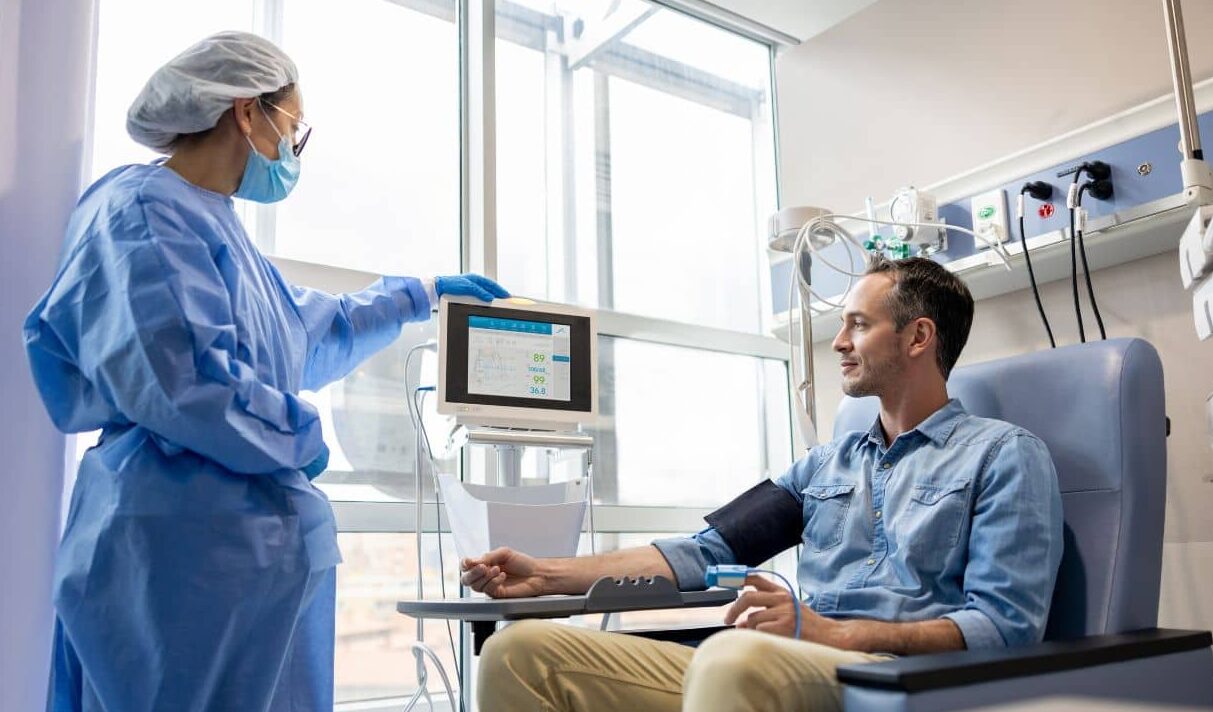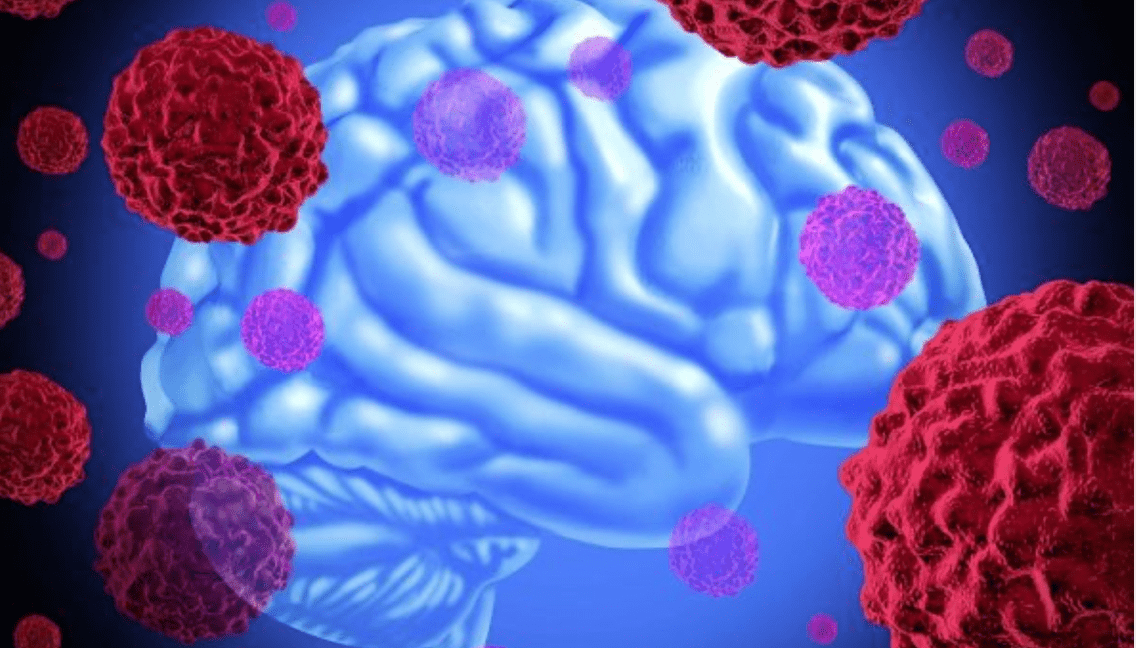-
 News
When glucose levels are low, chemotherapy ceases to affect cancer cells
News
When glucose levels are low, chemotherapy ceases to affect cancer cells
-
 News
Excessive treatment of prostate cancer in older men may reduce quality of life without increasing its duration
News
Excessive treatment of prostate cancer in older men may reduce quality of life without increasing its duration
-
 News
Brain cancer can be cured by viruses
News
Brain cancer can be cured by viruses
-
 News
Ways to reduce lymphatic pain in breast cancer have been found
News
Ways to reduce lymphatic pain in breast cancer have been found
-
 News
Scientists have turned bacteria into a powerful weapon against cancer
News
Scientists have turned bacteria into a powerful weapon against cancer
All news
Neurology clinics in Germany
Thousands of patients from different countries come to Germany every year to treat neurological diseases. First of all, they are attracted by the high quality of medical services, the use of innovative therapeutic techniques and the high qualifications of German doctors. Today, more than 10 000 neurologists work in Germany, most of whom are members of the German Neurological Society, the largest specialized organization in Europe.
Germany is a world leader in neurological research. German scientific centers use effective and safe methods of treating disorders of the nervous systems. This allows German neurologists to successfully cope with the most difficult clinical cases.
MedTour patients recommend clinics for the treatment of neurological in Germany:
Doctors for the treatment of neurology in Germany
Frequently Asked Questions
Compared to other medical tourism destinations, the treatment of neurological diseases in Germany has several advantages. Among them:
- High quality medical care;
- Comprehensive diagnostics of patients using state-of-the-art equipment;
- Drawing up a separate treatment plan for each patient, taking into account his personal needs;
- Application of innovative therapeutic approaches;
- High qualifications and level of professionalism of German neurologists.
The prices for diagnostics and treatment may differ depending on the type and severity of the disease, as well as on the pricing policy of the clinic. Examples of prices in German medical centers:
- Scintigraphy — from $740;
- MRI — from $590;
- CT scan — from $700;
- Electromyography — from $630;
- Deep brain stimulation — from $39 240;
- Vagus nerve stimulation — from $29 160.
To do this, just leave a request on the MedTour website. The medical coordinator will contact you shortly. He will help:
- Choose the best clinic and doctor, taking into account the characteristics of your disease;
- Collect all the necessary medical documentation;
- Solve all related organizational issues (booking air tickets, hotel, airport transfer).
Services of the MedTour company are free. The patient pays for diagnostics and treatment at the cash desk of the selected clinic.
Specificity of neurology in Germany
Neurology is one of the fastest growing areas of medicine in Germany. In recent years, many new neurological departments have opened, and beds have been added to the existing ones. This rapid growth is due to the fact that over the past 25 years, neurology in Germany has evolved from a diagnostic discipline to a therapeutic one.
Not so long ago, many chronic neurological diseases, such as multiple sclerosis or Parkinson’s disease, could only be diagnosed by doctors. Clinical observation was the only treatment. Currently, effective therapeutic techniques have been found that slow down the progression of the disease, reduce the severity of symptoms and improve the quality of life of patients.
Neurologists in Germany undergo long and varied training, which allows them to study well the mechanisms of development of diseases of the nervous system. They work closely with doctors of other specialties such as psychiatrists, psychotherapists, cardiologists, neurosurgeons and geriatricians. Thanks to this, the patients of German neurological clinics receive comprehensive and effective medical care.
What neurological diseases are treated in clinics in Germany?
Neurologists at German medical centers treat a wide range of diseases of the central and peripheral nervous system. Most often, medical tourists come to the country for treatment:
- Chronic degenerative neurological pathologies (Parkinson’s disease, multiple sclerosis, Alzheimer’s disease, amyotrophic lateral sclerosis);
- Stroke and vascular diseases of the nervous system;
- Infectious neurological diseases (meningitis, shingles, tick-borne infections);
- Epilepsy and other convulsive conditions;
- Syringomyelia;
- Neuromuscular disorders;
- Diseases of the spine, spinal cord and nerve roots;
- Headaches and facial pains;
- Tumors of the brain and spinal cord.
Methods for the diagnosis of neurological diseases in Germany
Doctors of German clinics pay great attention to high-quality diagnostics. For early detection of neurological abnormalities and the choice of the best therapeutic tactics, they use the following diagnostic methods:
- Electroencephalogram (including day and night video EEG monitoring) and other electrodiagnostic tests (electromyography, nerve conduction velocity, evoked potentials);
- Ultrasound examination of cerebral vessels (Doppler / duplex);
- Biopsy of nerves and muscles;
- Analysis of cerebrospinal fluid;
- Fiber optic endoscopic evaluation of swallowing (FEES);
- Visual diagnostics (CT, MRI, scintigraphy).
Methods of treating neurological diseases in German clinics
Medical centers in Germany use a wide range of treatments for the pathology of the nervous system. Many of them were developed directly by German doctors. In addition to standard approaches, German neurologists also apply innovative therapeutic techniques such as:
- Treatment of essential tremor MRgFUS. The method stands for focused ultrasound therapy under the guidance of magnetic resonance imaging. During the procedure, a helmet is put on the patient’s head, which is an ultrasound transducer with over 1000 separate ultrasound sources. It allows you to focus sound waves on areas of the brain that are only a few millimeters in size. At the target point, the directed energy heats up the tissue and destroys the nerve cells responsible for the tremor. In most cases, the results of the treatment are visible immediately after the procedure.
- Treatment of multiple sclerosis with a new drug. More recently, German clinics have begun using a new antibody-based drug for the treatment of recurrent multiple sclerosis. Research has shown it helps patients live longer and significantly improve their quality.
- Laser treatment for epilepsy. Laser ablation of epileptogenic foci is a new technology that has become an alternative to highly traumatic surgical intervention. During the operation, the doctor makes a hole only 3 mm in size in the patient’s skull. A probe is inserted into it, which, under the control of MRI, is directed to the areas of the brain that provoke epileptic seizures. The main advantages of this technique are minimal invasiveness and the ability to target epileptogenic foci without damaging healthy brain tissue.
- Migraine treatment with a new drug. Monoclonal antibodies have found application not only in the treatment of multiple sclerosis, but also in the treatment of severe forms of migraine. They target the neuropeptide CGRP, which dilates blood vessels in the brain and plays an important role in the development of migraine attacks. Unlike other migraine prophylaxis drugs, which take several months to start working, the new drug works immediately after administration, reducing the number of attacks by more than two-thirds.
This is an incomplete list of treatments for neurological diseases in Germany. After a comprehensive examination, German doctors select the therapeutic tactics that are most suitable for the patient and take into account his individual needs.
If you still have questions about treatment in clinics in Germany, leave a request on the MedTour website. The medical coordinator will contact you shortly. He will help you choose the most suitable clinic and doctor.
Published:
Updated:


Information on this webpage verified by the medical expert






